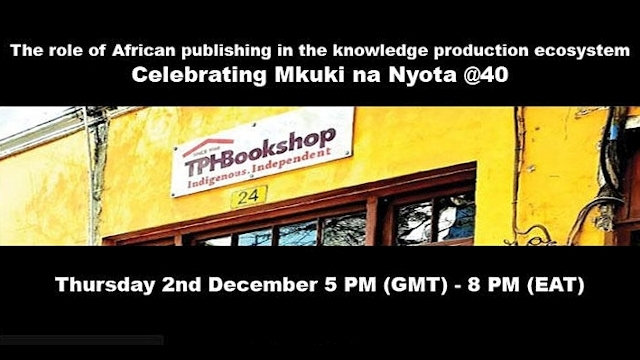
The need for rigorous ISO 30401 auditor training and certification, and a new initiative in this regard
This article is part of a series on knowledge management (KM) standards.
Risks in the implementation of ISO 30401
The new knowledge management (KM) standard ISO 30401:2018 Knowledge management systems – Requirements was published in November 2018. Some organisations have since moved forward to implement the requirements of the standard, including seeking certification against the standard (for example MBRF).
In the previous RealKM Magazine article “Implementing KM standard ISO 30401: risks and opportunities,” published in April 2018 ahead of the standard, I identified six potential risks in the implementation of the standard. Two of these risks are the risk of low-quality certification and the risk that organisations implement the KM standard symbolically rather than meaningfully.
The significant risk posed by low-quality certification can be clearly seen with other ISO standards. There is also clear evidence1 of organisations claiming to have adopted ISO standards but not actually genuinely implementing the standards to improve organisational performance.
These risks point to the need for the KM community to ensure that the training and certification processes for ISO 30401 auditors are rigorous. Two more of the six risks that I identified in my previous risks and opportunities article further reinforce this need. These are the risk that the standard exacerbates divisions in the KM community and the risk of low uptake.
In a recent poll carried out by Santhosh Shekar, 51 of the 191 respondents expressed the view that ISO 30401 is a complete waste of time. Of the 191 respondents, 64% were KM professionals, and the remaining 36% were business leaders and business managers. If cases of low-quality ISO 30401 certification were to emerge, then in addition to the direct risks, these ISO 30401 critics would very likely use such examples as further ammunition against the standard. Business and industry confidence in ISO 30401 and KM generally would also potentially be undermined, reducing uptake of the standard.
New ISO 30401 auditor training and certification initiative
With certification risks in mind, Dr Ron McKinley and Patricia Eng have launched a new ISO 30401 auditor training and certification course. Dr Ron McKinley was previously the chair of the ISO Technical Committee that helped to develop ISO 30401, and Patricia Eng is a respected KM practitioner and co-author of the KM Cookbook.
Information on the auditor training and certification can be found on the KM/HR Systems Auditors website. The first class will be convened in January 2021.
The rigour of the course can be clearly seen. Candidates must meet course prerequisites before being accepted into the class. This includes being able to demonstrate both audit and KM experience, and candidates may be asked to undertake additional training before being admitted to the course. There are then numerous oral and written exercises throughout the course, and a written final exam. Candidates who pass the exam will obtain associate auditor certification, but full certification is only achieved after a senior auditor has observed the provisional auditor conduct an audit to ensure that the new auditor is competent.
However, a note of concern
The rejection of ISO 30401 by more than a quarter of the respondents in Santhosh Shekar’s recent poll comes as no surprise given the controversy that erupted when the draft standard was released for public comment at the end of 2017. As I’ve discussed in another previous article, consultation during the ISO 30401 draft KM standard development process was inadequate, and time and time again I’ve seen processes fail because they didn’t adequately involve all relevant stakeholders and their knowledge.
If the implementation of ISO 30401 is similarly not as open and inclusive as possible, then opposition to the standard will continue or potentially even grow. Having ISO 30401 auditor training and certification centred on just two people in one country in the Global North is a risk in this regard, particularly with growing awareness of the significant global knowledge bias towards the Global North and clear evidence that our divided world is unable to unite to address global challenges.
In consideration of this, Dr Ron McKinley and Patricia Eng are encouraged to explore how they might be able to help empower a global community of KM practitioners to be able to similarly deliver rigorous ISO 30401 auditor training and certification throughout the world. To be successful, the training will need to be culturally aware and culturally appropriate. Establishing a global community of practice that can help to facilitate and encourage the ongoing integrity of ISO 30401 certification is also highly desirable.
Header image source: Adapted from Mohamed Hassan on Pixabay, Public Domain.
Reference:
- Vílchez, V. F. (2017). The dark side of ISO 14001: The symbolic environmental behavior. European Research on Management and Business Economics, 23(1), 33-39. ↩
Also published on Medium.







Bruce:
I wonder how many of the “no” respondents to Santhosh’s survey said so because the actual value of the ISO is still relatively unknown.
So, it begs the question: is the rush to “certify” an under-proven standard is part of the problem? Maybe, if the standard were implemented and experimented in organizations without a need to “certify” there would be useful feedback on it.
Then, after a few years of implementation (3-5?) THEN having a “certification” would both have merit, and be understood as a valuable thing.
There are some who are strongly opposed to the standard and I expect that they will maintain this view no matter what, and some others have also been influenced by these views. However, as you say, there will be others who can’t see its value now but who can potentially be persuaded to view it positively if they can see value demonstrated. It would be good to know more about the specific views of survey respondents in this regard so I’ll ask Santhosh if he can reply with more information. A reservation I would have about adoption without certification is the potential for some organisations to claim that they are implementing the standard when they’re really not, and this already occurs with other standards. However, this can potentially be managed through the vigilance of the KM community.
Firstly, congratulations to Patricia and Dr. Ron for initiating Practitioners Auditor certification Training Program!
I believe an ecosystem around ISO 30401 KM standard has started to slowly emerge, which I believe is very important for any field’s expansion and prosperity!! i.e. consulting companies will start promoting ISO 30401 KMS, Mature KM practicing – Organizations will start aligning to KM standards, organizations who wanted to start KM will start adopting the standards, and organizations which have not yet started KM in official capacity will start learning about this standard and will start adopting it as critical organizational development area.
Once these needs arise strongly, there will be huge opportunity created for every need in the market and I believe individuals, organizations, institutes will shoot up to cater to this market needs.
I would further go and say, let there be many unicorns with pure KM practices Startups, let there be Gartner Like Pure KM organizations in every country, let there be 100’s of KM Training organizations, let there be thousands of KM jobs to create value in organizations in every country !!
Value of certification for organization is up to the organizations to decide, however we as practitioners need to propagate the philosophy of KM and adaptation of KM standard with practical cases, industry specific solution patterns, domain specific body of Knowledge etc.; Please watch #knowledgewebcast about practical GE ISO KM model – https://youtu.be/xj5f6kUQhRM : Dr. Rachad Speaks how they got value out of KM standard.
I believe when people see value on the ground, when organizations adopt KM as critical organization development area to start with, KM ISO standard does provide the much-needed integrated framework. If and only if employees are able to experience knowledge fulfillment based on their roles, that is the first win for organizations for the focused approach to implement ISO KM standard, rest is optional
And again, every organization is in different phases of KM lifecycle, based on the maturity either they will pull these markets offered services or reject the services if it is of non-value!!
Thank You,
Santhosh Shekar